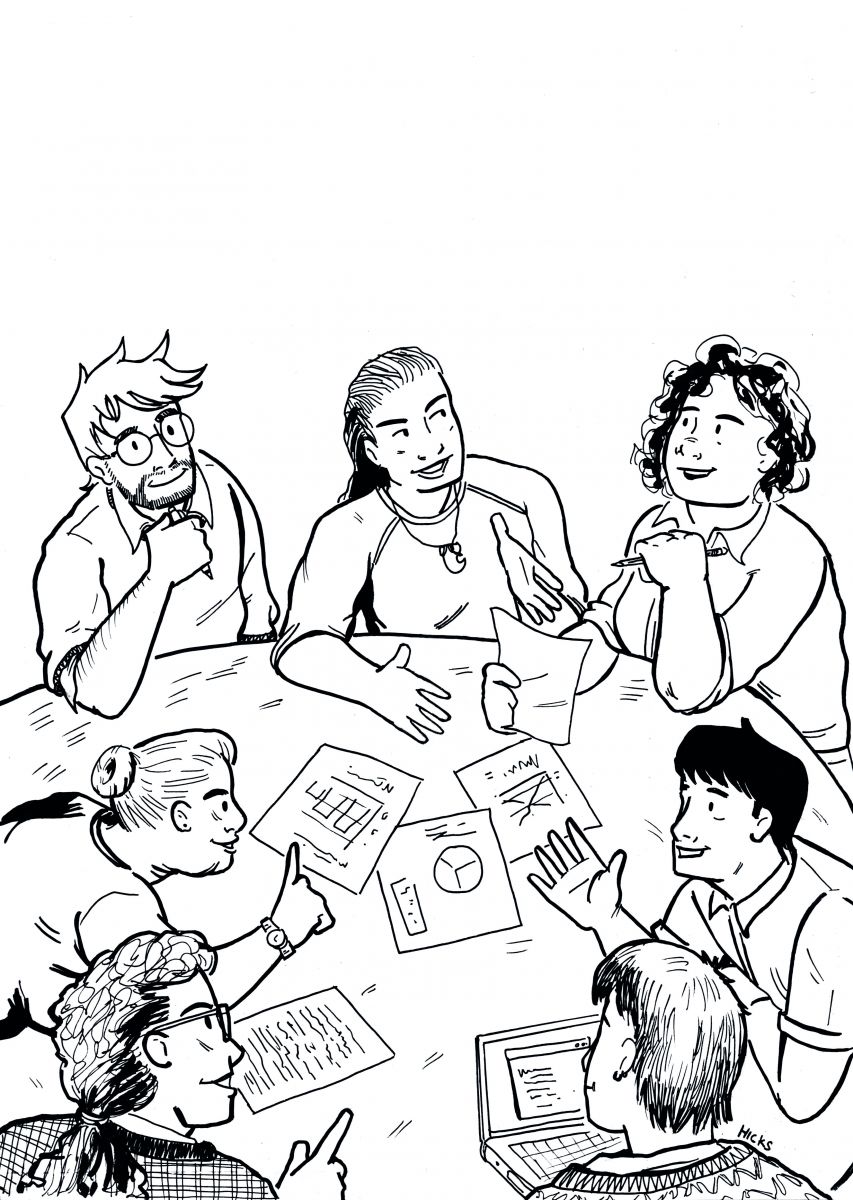International research initiatives that seek to address global challenges often require collaborations between western-based non-Indigenous researchers and Indigenous
researchers living in and/or working with their communities. Despite best intentions,these collaborations may reproduce colonial approaches to knowledge production
and use. They may position Indigenous researchers as junior members of the team. And research findings can construct Indigenous peoples as problems. For
example, the collection and analysis of statistical data can focus on Indigenous peoples as deficient in comparison to non-Indigenous norms, rather than (also)
tracking the reproduction and accumulation of privilege and/or identifying resilience. Collaboration can also prioritise claims about superior universal methodologies,
ignore local relations and context, and are rooted in accompanying power imbalances in Global North and Global South research collaborations.
A context for Indigenous and non-Indigenous research partnerships is historical and ongoing colonisation, with the appropriation of Indigenous people’s resources and knowledge. Historically, there has been mainly western migration to and settling on Indigenous lands, with settlers ruling over and oppressing Indigenous peoples, appropriating and profitingfrom Indigenous resources and knowledge at the same time as denigrating Indigenous
cultures and knowledge. Academic Indigenous and non-Indigenous research partnerships can perpetuate this exploitative relationship. It can be replicated in how the research focus gets defined and in relationships between Indigenous and non-Indigenous researchers on the research team. But Indigenous peoples have long had their own methodologies of finding out about the world, and Indigenous research and knowledge starts from different knowledge systems and value bases to western dominated research frameworks.

Olivia D. Hicks (the illustration is work in progress)
Research world views
All research methodologies are grounded in the specificities of people’s world views. Western dominated mainstream research frameworks claim grounding in universal ideas about rigour,
generalisation and replicability. Indigenous methodologies are various and include grounded knowledges about their social and natural environments. Western dominated mainstream research often aspires to be transformative in ways defined by powerful interests, such as government and business. Indigenous research aspires to be critical, transformative and to benefit the community or collective grouping as they define that themselves. Western dominated research is often challenged as being deficit based, identifying needs and risks, and attempting to solve social problems that are identified as challenges by governments. Indigenous research may aspire to questions or purposes concerned with wellbeing, self-determination, sovereignty, rights and so on.
Why collaborate?
Research partnerships between Indigenous researchers practising Indigenous methodologies and non-Indigenous researchers offer benefits. For non-Indigenous researchers, they can involve collegial and appropriate approaches to gaining knowledge about people’s lives, with a better understanding of a community’s needs and meeting them on their own terms. For Indigenous researchers, they can provide allies in addressing contemporary challenges facing Indigenous peoples and gaining respect for Indigenous approaches and knowledges. These benefits are why it is important for researchers to think about their expectations and practices across the whole research process.
www.indigenous.ncrm.ac.uk
The ‘Indigenous and Non-Indigenous Research Partnerships’ project, funded under the RCUK/ESRC International Collaboration initiative is producing online resources to support researchers planning collaborations. It encourages non-Indigenous researchers to think about their methods, assumptions
and behaviour. It does not provide a definitive blueprint. Rather, it introduces decolonising ways of understanding and researching, and a set of comic, audio and textual resources that can act as prompts to start thinking about the challenges and tensions in partnership working. The Indigenous/non-Indigenous Research Partnerships International Collaborations network team involves: Rosalind Edwards (University of Southampton, UK), Helen Moewaka Barnes (Massey University, Aotearoa New Zealand), Deborah McGregor (York University, Canada) and Tula Brannelly (Bournemouth University, UK), who worked in collaboration with Christine Garrington (researchpodcasts.co.uk) and Olivia Hicks, comic artist (University of Dundee, UK).

